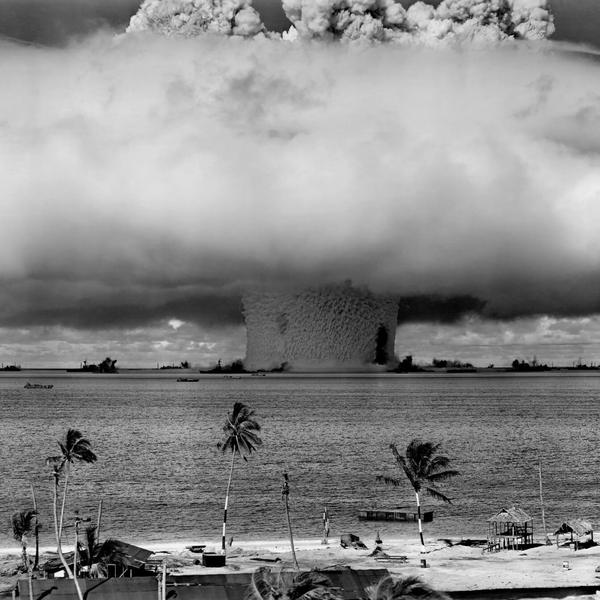Forty-one percent of Americans, including 67% of Democrats and 14% of Republicans, believe that Israeli military actions in Gaza constitute either “genocide” (22%) or are "akin to genocide" (19%), according to a new poll released Monday by the University of Maryland Critical Issues series.
Confirming a growing trend, younger respondents of both parties were more likely to say that Israel’s actions constitute genocide or the like.
The poll, which surveyed more than 1,500 adults 18 and older between July 29 and August 7, found that only 22% of respondents said that Israel’s war in Gaza constituted “justified actions under the right to self-defense,” the public explanation by the Israeli government headed by Prime Minister Benjamin Netanyahu. Those included a mere 7% of Democrats and 46% of Republicans. A total of 23% of all respondents said they didn’t know.
Moreover, more than six in ten (61%) of respondents said that U.S. military, economic, and diplomatic support for Israel has enabled that country’s military actions, compared to 12% who said such assistance either has no impact (12%) or only marginal impact (10%) with the remaining 26% saying they didn’t know.
The view that Washington’s support has enabled Israeli actions in Gaza was transpartisan. Nearly three out of four Democrats (72%) agreed with that proposition, as did 57% of Republicans, and 63% of self-identified independents.
The survey was released amid growing international criticism of the Israel’s war, which is likely to intensify in the wake of Monday’s strike by Israel on a hospital in southern Gaza that reportedly killed 20 people, including five journalists bringing the total number of Palestinian journalists killed over the last 22 months to 189, according to the New York-based Committee to Protect Journalists.
The poll, the latest in a series dating back more than a decade by the University of Maryland, found that more Americans express sympathy for the Palestinians (28%) than with Israelis (22%), while 26% of respondents said they sympathize with both equally, and the remaining 25% aid they either sympathized with neither party (12%) or they didn’t know (13%).
Support for Palestinians was higher among respondents between 18 and 34 years old; 37% of that demographic said they sympathize more with the Palestinians compared to 11% who said they sympathize more with Israel. The gap between older and younger Republicans was particularly deep, according to Shibley Telhami, the Anwar Sadat Chair for Peace and Development at the University of Maryland, who has overseen the Critical Issues program.
“The change taking place among young Republicans is breathtaking,” he told RS via email. “While 52% of older republicans (35+) sympathize more with Israel, only 24% of younger Republicans (18-34) say the same — fewer than half.”
He also stressed that, while recent polls, including by Gallup and the Pew Research Center, have shown increasing sympathy for Palestinians, “this is the first time it is found that more Americans overall sympathize more with Palestinians than Israelis.”
Four out of ten respondents, including 63% of Democrats and 45% of independents, said the Trump administration’s policy toward Israel-Palestine is “too pro-Israel,” compared to only 3% who said it’s “too pro-Palestinian.” Another 27% said it was “about right,” and 30% said they “don’t know.” While a majority (57%) of Republicans said it was “about right,” more than one if five Republicans (21%) said it was “too pro-Israel.”
On the genocide/self-defense question, the survey found a large gap between younger and older Republicans, with 52% of the latter saying Israeli actions were justified, but only 22% of self-identified Republicans under 35 agreed with that assessment.
Significantly more respondents said that Israeli actions constituted genocide or were “akin to genocide” than a year ago when the University of Maryland series first posed the question. The percentage who agreed with the genocide proposition grew from 23 percent to 41 percent. The movement among Democrats was particularly significant — from 38% who agreed with the proposition one year ago to 67% in the latest poll.
Asked to assess whether current U.S. policy in the region “advances American interests,” only one third of all respondents responded positively, while 25% said “it mostly advances Israeli interests” and 6% said “it mostly advances interests of Arab states.”
Remarkably, more younger Republicans (26%) said U.S. policy mostly advances Israeli interests than said it mostly advances U.S. interests (24%).
- More US lawmakers publicly blame Israel for starvation, deaths in Gaza ›
- Poll: Most Americans don't want to send troops to defend Israel ›
- Does the House have the grit to 'Block the Bombs' to Israel? ›
- Gallup Poll: American sympathy for Israelis lowest on record ›
- Another poll shows Americans’ declining support for Israel | Responsible Statecraft ›
















